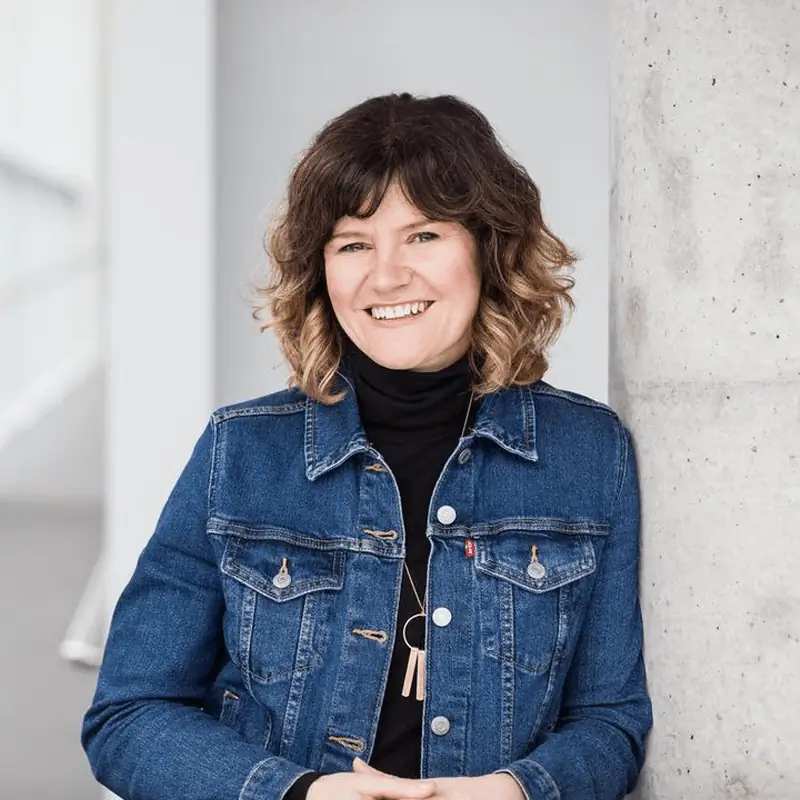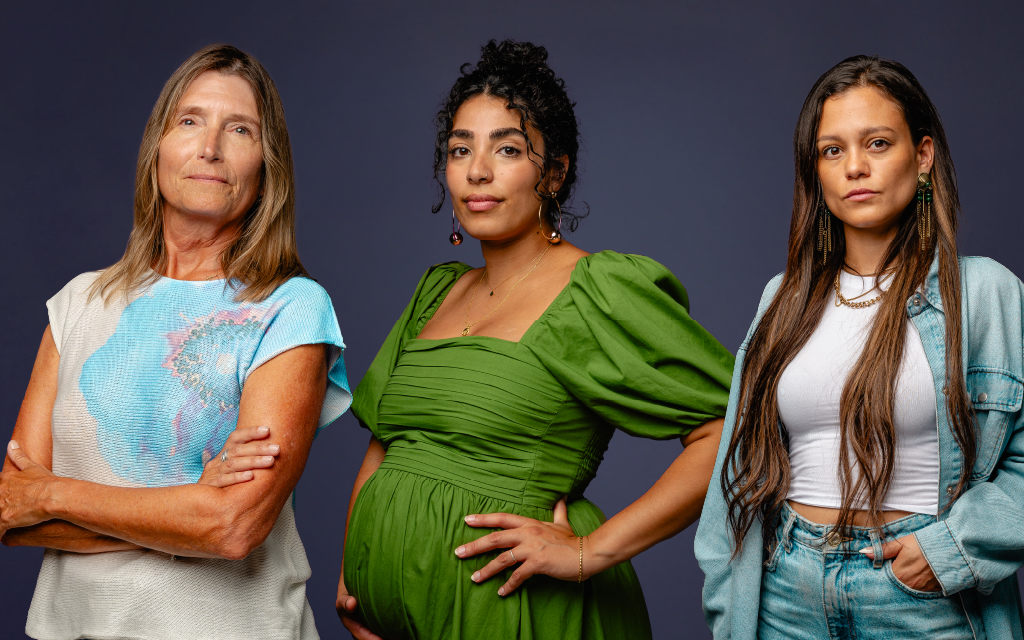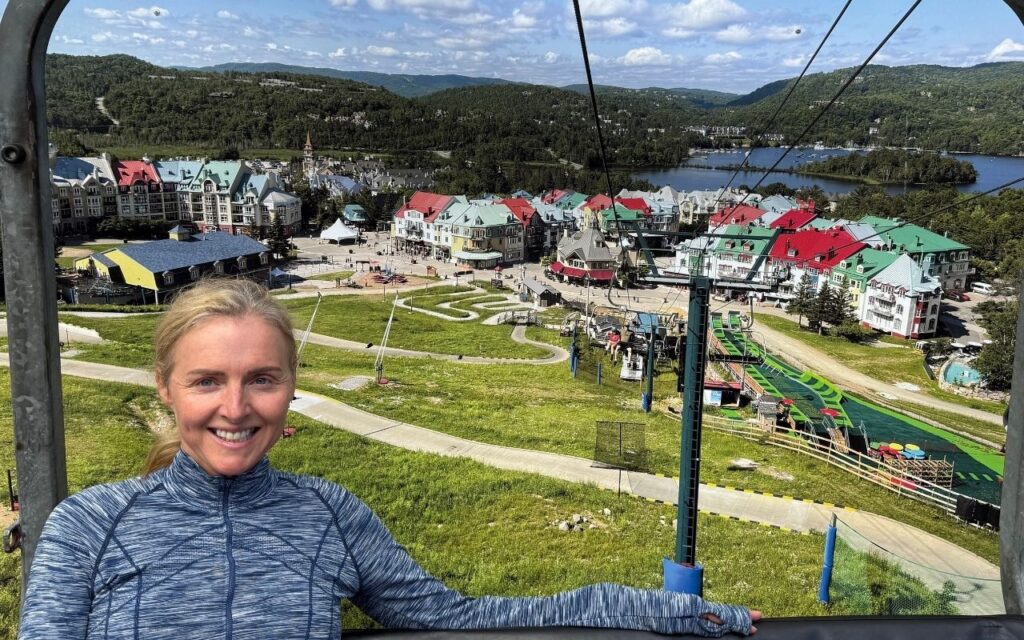
Managing stress in a leadership role
Jennifer Stewart: I think people see others like yourself, an executive and former Member of Parliament, who think a global pandemic and all that comes with it must be a breeze for you. What are your stress management tools during the pandemic?
Megan Leslie: I have to plan out everything. Even when I can be a sloth and not feel guilty about it. It’s intention — that’s an overused word — but I am intentional about all the things. This is when I put my head down and get to work. This is the time when I relax. This is when I push myself to go for a walk and go outside, even though I don’t want to. If I can give myself that structure, including the structure of, “Hey, this is downtime, revel in it, love it, you’re not wasting time.”
We were chatting a little before we started the podcast about how that can be hard in a leadership role. There’s a lot of excellent discussion now about leaders being open and authentic with the people in their workplaces about needing downtime when you’re not doing so well. It’s a tricky thing to do in real life, because people look to the leadership of their organizations or workplaces for direction, comfort, and optimism. If you are in that leadership role, it can destabilize people.
I noticed that a lot when I was in politics. I wanted to be authentic, and I didn’t want to be that plastic politician who’s just like, “Everything’s great. Come talk to me about your policy issues.” I wanted to be a real person, but it was sometimes alarming for people to hear that I was a real person. So it’s knowing when to show that more vulnerable side of yourself, and when it’s not the right moment, when people just need you to tell them it will be okay. It’s a weird line to walk.
Jennifer Stewart: It could be because you’re front and centre, managing a pandemic, and managing expectations, but you’re also a human at the end of the day.
Megan Leslie: When I sought the nomination to become the candidate for the NDP in Halifax in 2008, the election had already been called and we didn’t have a candidate yet. So, our nomination was pushed super fast; it all happened within a matter of days and it was intense.
I walked in as the candidate, and there was a gal at the front desk of the campaign office, and she asked me how I was doing. I said, “I’m fine. I’m good. But man, this has been wild, and I’m just exhausted.” And my campaign manager, who I love, asked me to step into her office. She said, “Don’t you ever tell people you are tired. Don’t you ever tell them that you are under the weather or sad or down; you tell them that things are great. They need that from you. You are bright and bubbly and charismatic. And then you come in here, and we close the door, and you tell me what’s happening. I’m the one you talk to when you need help and support. But out there, you are the candidate they are working for, pouring their hearts and souls into, and they need you and your energy.” It was a real lesson in life in 45 seconds.
Being shaped by early experiences
Jennifer Stewart: Going back to your childhood,Megan, what were you like as a kid? And who did you look up to?
Megan Leslie: I was painfully shy. I was asked to read a composition I’d written in front of the school, and I got one of my friends to do it for me. I just didn’t show up. I might have given her a box of candy, so technically I paid her to do this speech for me. I admired the kids that could just be themselves and talk to people and talk to grownups.
When I was 15, and we got our first yearbook from high school, me and my friend, Judith, were going through it and we were looking at all this fun everybody had been having. There were all these things that had happened in the school that we didn’t even know about. So we pledged to each other that we were going to get involved. We started joining things and said to each other, “We can do this. We’ve got each other’s back.” By the end of high school, I was on the student council, I was a prefect, I was head of the environment club, I was yearbook editor. I took it to the nth degree. I was shy, but I made a conscious decision to not be shy and to get involved.
Jennifer Stewart: You studied abroad in Ghana as a young woman. What impact did that experience have on you?
Megan Leslie: That was a cross-cultural exchange with Canadian Crossroads International. They would send people to the global South, and then people from the global South came to Canada for cultural exchange. I was 19 and the youngest person to go, and it was an experience that changed and shaped the rest of my life. When I look critically at my motivations for going, they were so horrible and colonial. I was 19 years old from northern Ontario; what did I know about the world? I learned an incredible amount, just to understand that my reality was not the reality of so many other people.
I wanted to have this experience before I thought about what I wanted to do in the world, and I really took to that motto of “think global and act local.” Some people, after an experience like that, get involved with international development, but I knew there was stuff I could work on here in Canada that would be really exciting.
Catherine Clark: Were you even thinking politics at that point?
Megan Leslie: No, definitely not thinking politics or law at that point. I had never met a lawyer or politician except for our mayor, who was my gym teacher. But when I was 15 years old, I and my two best friends knew there was a plan to bring business to my town. I was from a hardrock mining town in northern Ontario, and there were these empty mine shafts under the town, and my town was desperate for jobs. So there was this proposal to bring in toxic waste and store it in these empty mine shafts. And the proposal was going to bring us jobs, and it was going to get us prosperity. And like we were desperate, you could smell it. People thought, “Well, this is worth considering.”
My friends and I, we weren’t environmental assessment experts or scientists, but we knew this was not a good thing for our town. So we protested; we made these signs with fluorescent yellow paper that said, “No, no, we won’t glow,” and we marched in front of town hall. And town council decided not to go ahead with that proposal. We did not think that we made the difference, not by any stretch of the imagination, even then. But that was my first experience of being a part of my community, and realizing I had a voice and I could have a say and influence what was going on in my community. That was my first taste of activism, and I knew that’s all I wanted to do — I wanted to work on social, economic, and environmental rights, though I didn’t have that language for it yet. I felt it in my heart.
I went to university, got involved in campus happenings and campus politics like working at the women’s centre, making queer spaces on campus, and from there thought, what can I do to contribute other than protesting.That’s what led me to law school, that I could use the law as a tool for change.
And that’s why I ran. Again, I wasn’t in love with politics, but I thought it could be useful because you do need some people “on the inside” who are pushing for these things. I really believe that true power lies in community, but if I had certain skills and abilities, and different paths opened for me, I should seize them.
Finding solidarity amongst women
Jennifer Stewart: You’ve talked about the importance of relationships with other female MPs of all political stripes. What made those relationships so valuable to you?
Megan Leslie: I attribute a lot of the negativity and toxicity of politics right now to the 24-hour news cycle. It forces politicians to always have a hot take on everything; it forces politicians to want to try and do the gotcha politics, because you have to feed the beast. Having relationships with MPs across party lines, particularly with women MPs across party lines, helps flatten that a little bit and enables you to understand that those other politicians are people.
There are only a few women in the House of Commons, so to be able to talk to another woman around my age who would immediately get it and I wouldn’t have to explain the backstory of what it’s like to be a woman in politics — it helped support me as a young woman in politics, but it also helped to soften some of those hard and gross and toxic edges, because we didn’t do that with each other.
Catherine Clark: How hard is it for women in politics still?
Megan Leslie: In some ways, I feel it’s ancient history; things have moved so far and fast. It is hard to be in politics, full stop. There is a lot of toxicity. The situation with women, it’s faster, it’s more furious, and it almost always steers towards sexualized violence. That’s the big difference, and it’s not just politicians and journalists who cover politics. When I was an MP, I would get together with a small group of elected officials and journalists, all women, and we’d just get together for dinner occasionally and not talk politics, per se, but just connect as women in that world. They got it too, just really horrifying stuff.
Jennifer Stewart: A lot of people, in particular women, are feeling exhausted, overwhelmed, uncertain about the future in terms of how long this pandemic will last, and wondering when can we get back to some level of normalcy. If you could give them one piece of advice, what would that be?
Megan Leslie: If I could give one piece of advice, it’s that all of it is okay. It’s okay if you’re not exercising enough, overeating, short-tempered, don’t want to get out of bed, or just want to watch that movie you’ve watched 8,000 times because those characters seem comfortable, if you don’t want to put on pants with a button, or if you’re having a great day — all of it is okay. Just giving yourself that permission.
(Note: This transcript has been edited for length and clarity.)







